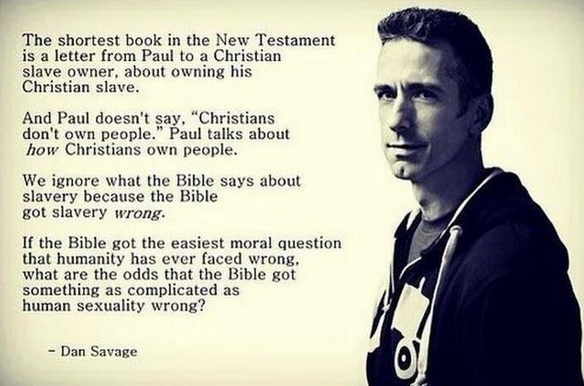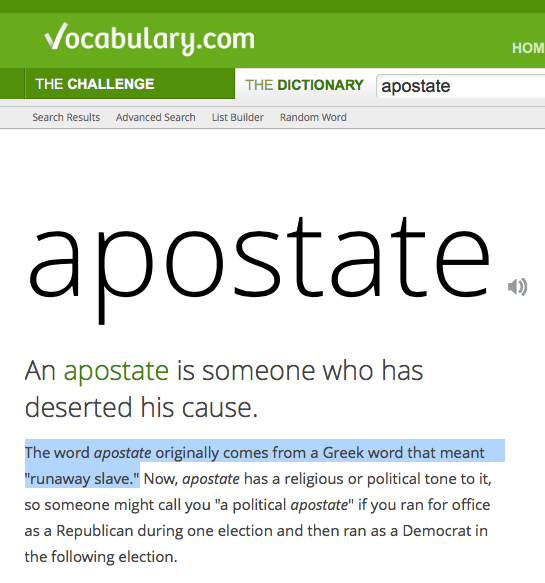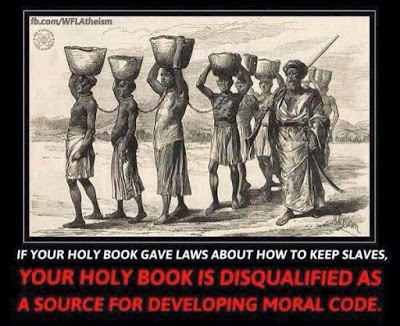“I Can Do All Things through Christ”
Philippians; Colossians; Philemon
LDS manual: here
Purpose
To encourage readers to emancipate themselves from spiritual slavery
Reading
This lesson deals with three Pauline epistles — Philippians, Colossians, and Philemon — only two of which were written by Paul.
That’s right, Paul didn’t write one of them: Colossians. But how do we know?
The words we use are unique to us, like a fingerprint. We can’t really change our style. That means our word patterns can identify us. So for instance, we could arrange someone’s words into a kind of “top ten most common” list, and see if a new text’s top ten word list matches up.
Or, as Bart Ehrman points out, we could look at unusual words and phrases.
As with every instance of forgery, the case of Colossians is cumulative, involving multiple factors. None has proved more decisive over the past thirty years than the question of writing style. The case was made most effectively in 1973 by Walter Bujard, in a study both exhaustive and exhausting, widely thought to be unanswerable.
Bujard compares the writing style of Colossians to the other Pauline letters, focusing especially on those of comparable length (Galatians, Philippians, and 1 Thessalonians), and looking at an inordinately wide range of stylistic features: the use of conjunctions (of all kinds); infinitives; participles, relative clauses; repetitions of words and word groups; use of antithetical statements; parallel constructions; the use of preposition ἐν; the piling up of genitives; and on and on. In case after case, Colossians stands apart from Paul’s letters.
Sorry, Not-Paul. You were a good Paul impersonator, but you were detected by science.
My theme for this lesson is slavery. There are many kinds of slavery, even today. I don’t mean to trivialise the really awful kinds. But belonging to the church is a kind of voluntary slavery — and in some cases, it’s not even voluntary. Not only should we not put up with slavery advocates like Paul, we should free ourselves when possible.
Main ideas for this lesson
Real soon!
As we’ve mentioned, Jesus taught that he’d come back within the lifetimes of those living, and Paul appears to have believed this as well. Here he is, telling the members to hang tight until Jesus comes again
Phillipians 1:9 And this I pray, that your love may abound yet more and more in knowledge and in all judgment;
1:10 That ye may approve things that are excellent; that ye may be sincere and without offence till the day of Christ.
That’s right, folks… any day now. And again:
Phillipians 4:5 Let your moderation be known unto all men. The Lord is at hand.
Paul devalues our lives and our bodies
The LDS Church is a religion that demands of its members their time, talents, and everything they possess. And so, not surprisingly, the LDS manual phrases things in terms of sacrifices.
• Paul told the Philippians that he had sacrificed all things for Christ (Philippians 3:7–8). What had Paul sacrificed? Why is it important that we make sacrifices for Christ? (See Philippians 3:9–12.)
Ask: Why does the LDS Church demand so much from its members?
Answer: There are low-commitment religions and high-commitment religions. You might think that the low-commitment religions would have an edge, since one can belong to them, and barely have to do anything — or indeed believe anything. And in fact, these religions make up the bulk of Christianity.
But there’s a hidden tool that the high-commitment religions have: investment bias (which we’ve mentioned before in terms of the sunk-cost fallacy). It’s hard to get someone to devote their lives to a cause, but if you can get them started on an ever-escalating treadmill of obligations — come to church, stop drinking coffee, pay tithing, home and visiting teaching, and so on — then it becomes more likely that they’ll continue. After all, stopping the commitments would mean admitting that you wasted your time and money, and no one wants to do that after investing so much.
Joseph Smith was well aware of this. From the LDS Gospel Doctrine Manual:
The Prophet Joseph Smith taught: “A religion that does not require the sacrifice of all things never has power sufficient to produce the faith necessary unto life and salvation; for, from the first existence of man, the faith necessary unto the enjoyment of life and salvation never could be obtained without the sacrifice of all earthly things” (Lectures on Faith [1985], 69).
In other words, demand everything from them, and you’ve got them.
There are only a few things that we can say that we truly own. One is our body. Another is our life. If you’re going to own someone — in slavelike fashion — you have to attack their autonomy in both of these areas. In this lesson, Paul does just that.
First, he argues that life isn’t much, really. He’s only sticking around for his fans.
Phillipians 1:21 For to me to live is Christ, and to die is gain.
1:22 But if I live in the flesh, this is the fruit of my labour: yet what I shall choose I wot not.
1:23 For I am in a strait betwixt two, having a desire to depart, and to be with Christ; which is far better:
1:24 Nevertheless to abide in the flesh is more needful for you.
And Not-Paul points out that believers are dead anyway.
Colossians 3:1 If ye then be risen with Christ, seek those things which are above, where Christ sitteth on the right hand of God.
3:2 Set your affection on things above, not on things on the earth.
3:3 For ye are dead, and your life is hid with Christ in God.
Death cults are so creepy!
Then, as he does from time to time, Paul talks about how terrible and debased our bodies are. Bodies always want what’s wrong, and they’re kind of vile.
Phillipians 3:20 For our conversation is in heaven; from whence also we look for the Saviour, the Lord Jesus Christ:
3:21 Who shall change our vile body, that it may be fashioned like unto his glorious body, according to the working whereby he is able even to subdue all things unto himself.
(Don’t forget that in 1 Corinthians, Paul argues that even our body isn’t our own.)
There’s a purpose behind this kind of talk. To get someone to hand their bodies and their lives over to you, you have to lower the cost of forfeiture — to convince them that it isn’t anything really very much.
This is dangerous territory. As I write this, religiously-motivated terrorists around the world have murdered people in Beirut and Paris, blowing themselves up in the process. Who would do this, unless they were certain that they were doing it for a higher purpose, just like the one Paul is offering? Other things contribute — military aggression, a persecution narrative, socio-economic inequality — but religion, with its promise of an afterlife, is a uniquely enabling contributor. Many things may be the fuel, but religion is the fuse.
More misogyny
Christians aren’t just slaves to God — Not-Paul thinks women should be slaves to men.
Colossians 3:18 Wives, submit yourselves unto your own husbands, as it is fit in the Lord.
3:19 Husbands, love your wives, and be not bitter against them.
Note that husbands are not under any obligation to submit to their wives. Christian marriage comes with a built-in power imbalance.
Every knee shall bow
Not only does Christianity encourage a kind of slavery, but it looks forward to the day when everyone will be subservient to it.
Phillipians 2:10 That at the name of Jesus every knee should bow, of things in heaven, and things in earth, and things under the earth;
2:11 And that every tongue should confess that Jesus Christ is Lord, to the glory of God the Father.
Slavery
So it’s no wonder that Paul didn’t think actual slavery was any big deal. Onesimus was a runaway slave who became a Christian. Paul sent him back.
Philemon 10 I beseech thee for my son Onesimus, whom I have begotten in my bonds:
11 Which in time past was to thee unprofitable, but now profitable to thee and to me:
12 Whom I have sent again: thou therefore receive him, that is, mine own bowels:
But why? Not-Paul explains that servants should be obedient.
Colossians 3:22 Servants, obey in all things your masters according to the flesh; not with eyeservice, as menpleasers; but in singleness of heart, fearing God
There aren’t many moral decisions easier than whether it’s all right to own people, and Bible whiffs it. Dan Savage points this out.
Apostate
There’s hope for those in spiritual slavery. This weekend was the scene of yet another Mass Resignation in Temple Square.
Being in Australia, I wasn’t there, but those who were say that there was a great vibe there. Over 2,000 people submitted their resignations over the Church’s surprisingly punitive and harsh policy banning the children of LGBT members from joining the church without denouncing their gay parents.
Getting slightly less press: the LDS Church also defined LGBT people as ‘apostates’. Which led to an interesting observation:
Etymologically, the word comes from Greek: apo– “away from” + stenai “to stand.” But Oxford Dictionaries and Vocabulary.com both point out the “runaway slave” connection.
I think it’s fitting, don’t you? In a sense, those of us who have stopped supporting the church have escaped the slavery we were in. We have emancipated ourselves from a church that used our time, talents, money, and lives for its own benefit and survival. Well done, everyone.







Recent Comments